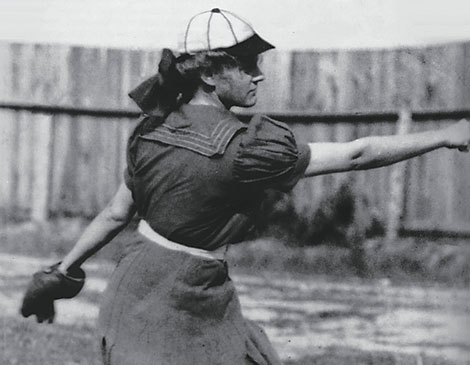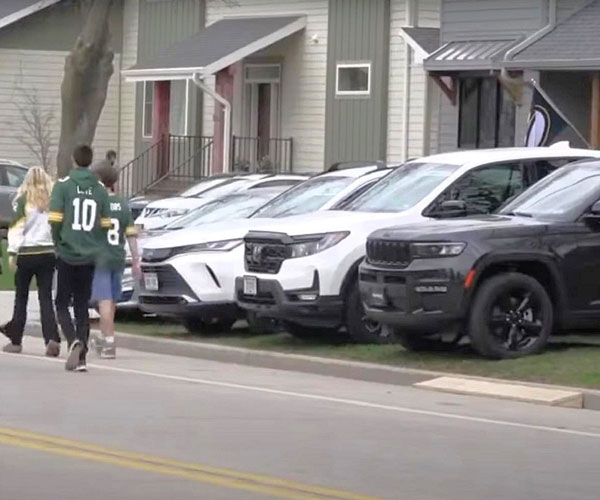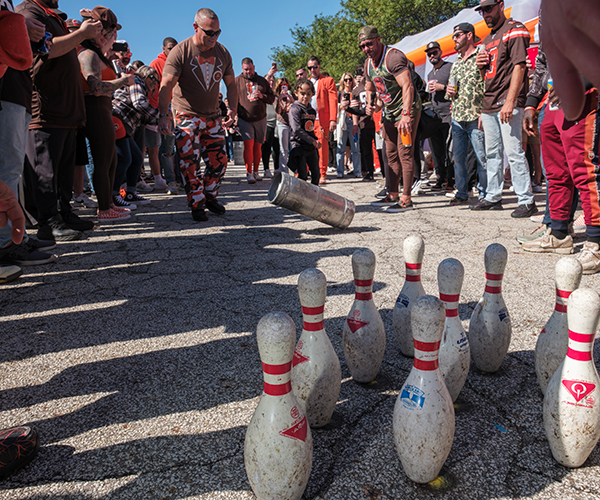Alta Weiss was in a league of her own. A semi-pro pitcher for the all-male Vermilion Independents in the early 1900s, Weiss became so popular that special trains were commissioned from Cleveland to see her in action. Her baseball talents even paid enough to put her through medical school, where she was the only female in her 1914 graduating class. On March 24, the Baseball Heritage Museum honors her legacy with a re-enactment of her story by actress Anne McEvoy. We asked McEvoy about Weiss, feminism and more.
Q: What appeals to you about Weiss’ story?
A: I love the idea that she had a sense of confidence about herself, kind of a nonapologetic approach to her sport. I’m sure she had those moments of “I really can't do this,” but in my mind that only makes her admirable that she was willing to keep going at it and see how far she could take her skills. Any step that’s made to change the current boundaries and limitation to what people can do, a culture, a gender, an age group, is progress for everybody.
Q: Why it’s important to showcase strong women from the past during a time when so many women today are pushing for change politically and socially.
A: I see many of the efforts that women are making right now, big national and international efforts. The human reaction to hitting the wall nine, 10, 11 times is to throw your hands and say, “It doesn't it make a difference.” But going back in history and looking at what some of the earliest female doctors, actors, Marines, artists, poets and writers had to take, I think that that whole “she persisted” message is very relevant in the story of these women, because we don’t tell the stories of the women who have it easy. … I’m not interested in hearing them as much I am the women who were faced with a ton of resistance and impossible barriers and said, “That’s OK, I'm going to find a way to do it anyway.” So I think these historical women are a really good reminder of not giving up.
Q: How do you see the audience reacting to Weiss’ story?
A: The [older] audiences have a better awareness of the progress that women have made over the years and women’s place in history. When there are young people in the audience, you really have to take a step back and remind them that not only did women not have the right to vote. It wasn’t expected that they would go to school past age 9 or 10. What they were taught in the 1800s was how to balance a simple house budget and how to read the Bible. In retrospect women had such a long, long way to go when she as playing semipro with men two years before women got the right to vote.
Q: How is she different to play than the other characters that you play. Is there a different approach to her?
A: How I play her in this piece is completely retrospective. So to play this woman who is now retired and living by herself with her cat and reminiscing, going back to some of her postcards, looking at her uniform, and some of the articles that had been written about her. There was nothing glamorous [about her], she was very down to earth and a kind of a practical country gal with a big brain and colorful history. There is nothing braggadocios about it. I think she realizes that the circumstances in her life were very unique to her. And she was very lucky. She had things that she complained about like, “Why did the papers have to write about what I was wearing? Why couldn’t they write about how good I was playing baseball?” That’s what she prided herself on.




